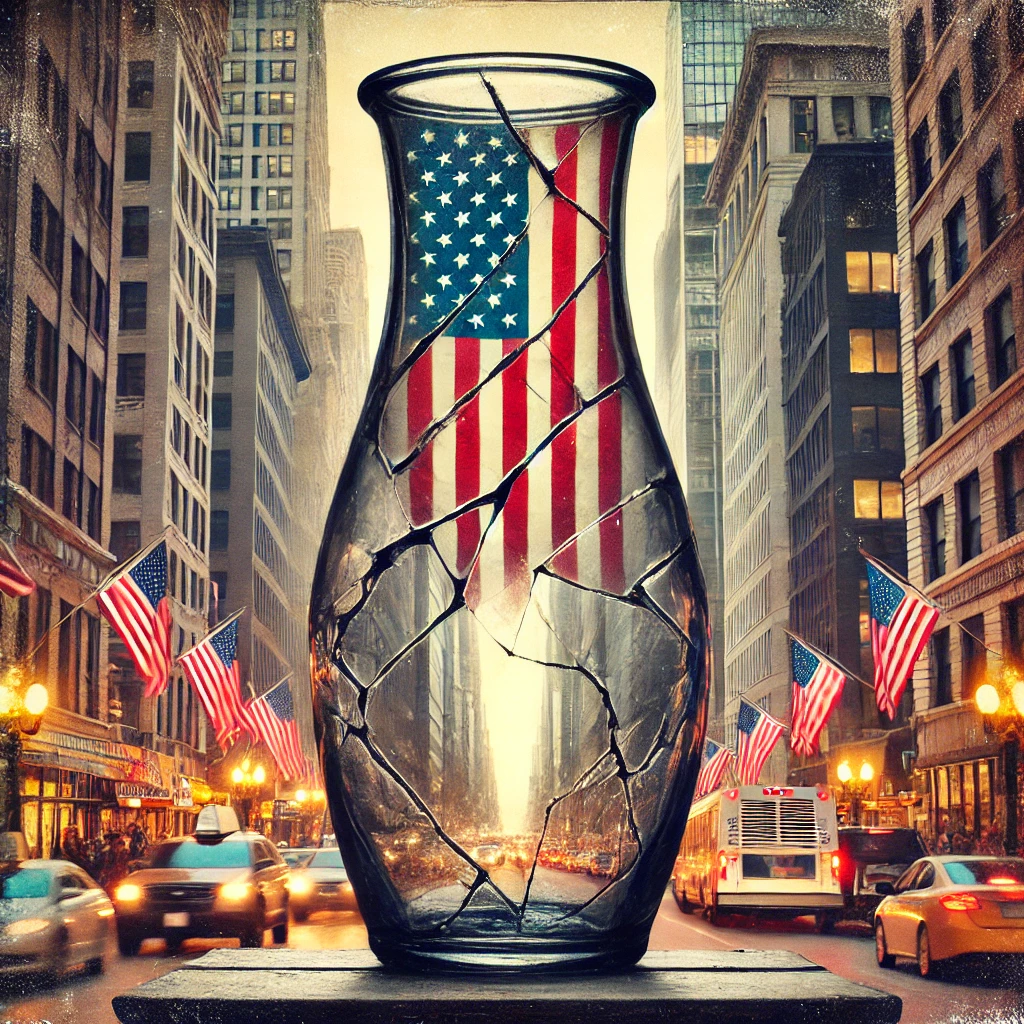I hate to burst your bubble, but America ain’t the free country most folks think it is. We used to be freer, sure, back when powdered wigs were all the rage and the Founding Fathers had a way with words. But let’s not kid ourselves: we’ve never truly been free. Not in the sense that freedom should be understood today. We haven’t tasted true, substantive freedom—freedom that runs deeper than a mere piece of paper or a bill of rights—since our ancestral existence as hunter-gatherers.
Now, you can’t see the smudge on a glass vase by staring straight at it. To truly understand a situation, you need to step back and see the whole picture, from every angle. And let me tell you, unless you’ve spent a decent chunk of time outside of the U.S., you’re probably not seeing things as clearly as you think. Mark Twain—who, let’s be honest, was the greatest American writer ever—had it right: “Broad, wholesome, charitable views of men and things cannot be acquired by vegetating in one little corner of the earth all one’s lifetime.” The inverse holds true, too. You can’t see the flaws in your own backyard until you step into someone else’s garden. If you’ve ever stayed with a toxic partner longer than you should’ve, you know exactly what I’m talking about.
I’ve spent the better part of the last decade living abroad, all while keeping up with U.S. news. And believe me, it’s been an eye-opener. First thing’s first: most people outside the U.S. don’t have a good word to say about us anymore. To them, America’s that big, loud bully on the playground, always stomping its feet and waving a shiny military-industrial complex in their faces. And who can blame them? Since I came into this world in 1991, the U.S. has launched over 251 military interventions. In less than four decades, we’ve stuck our noses in nearly every political squabble from Latin America to Africa. And that’s not hyperbole—that’s from a Congressional Research Service report, an objective body in the U.S. government. Are we truly the global beacon of freedom we once believed ourselves to be?
Now, don’t get me wrong. I’m not here to be an America-hater. When my friends were knocking back beers or dabbling in the world of experimental college relationships, I was obsessed with studying the Founding Fathers. I still think the U.S. Constitution is one of the most revolutionary documents in human history. And when my European pals start taking cheap shots at America, I’m the first to defend her. But here’s the kicker: I’m a scientist, and my loyalty has always been to the truth. And if there’s one thing the evidence makes clear, it’s that America—today—is far from the land of liberty we once envisioned.
Sure, we can yap about our government on social media or shout our critiques from the rooftops without fearing the cops will come knocking. But let’s be real—there are over 150 countries around the globe with laws that guarantee free speech. So, yeah, we can say what we want, but it’s hardly as special as we like to think.
Psychologists have a name for this—Context-Dependent Memory—and it’s what makes us see things differently when we change our surroundings. And trust me, the view of America from abroad is a whole lot murkier than the one from your living room.
The problem with living in a country that’s been so powerful for so long is that we start to believe our own hype. We’ve been the big dog on the block for so long that we think we can get away with anything. But let me tell you, the world is catching on. People are waking up to the fact that we might not be the ostensible beacons of freedom we once pretended to be.
Take a step outside the U.S., and suddenly, the glass is a little less clear. You start noticing the cracks. And it doesn’t take a genius to realize that something’s gone awry. So go ahead, tell me how great America is, again. I’ve got a decade of lived experience abroad to tell me otherwise.

